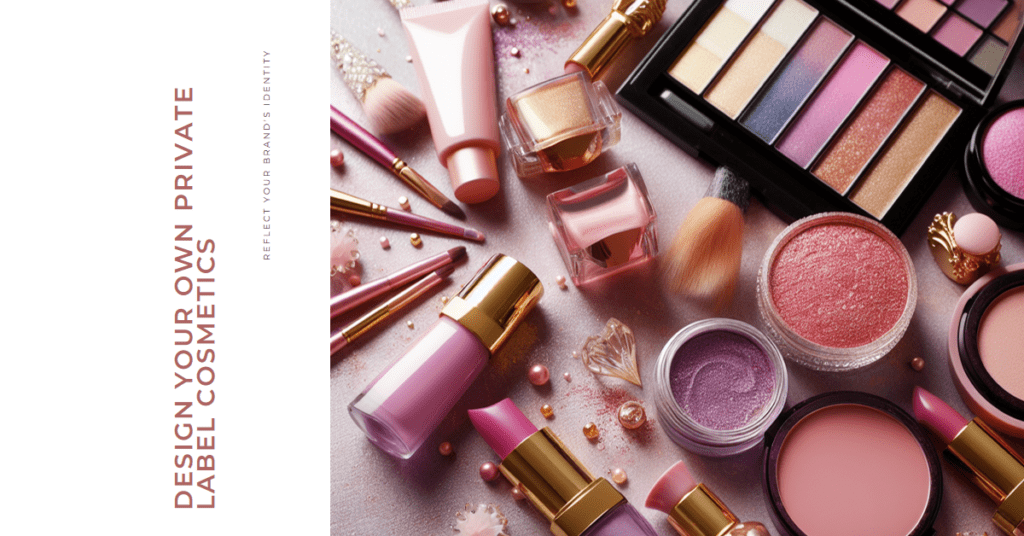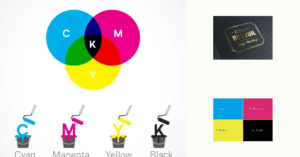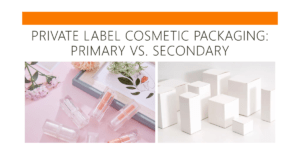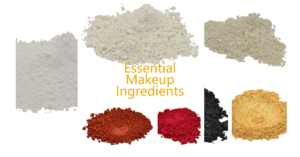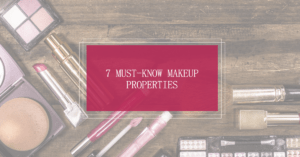Welcome to our comprehensive guide on designing your private label cosmetic line. If you’re an aspiring entrepreneur looking to create your own cosmetic brand, you’ve come to the right place. In this article, we’ll provide you with expert tips on navigating the intricacies of designing a successful private label cosmetic line.
Designing a private label cosmetic line involves careful planning and strategy. From establishing your brand’s unique identity to choosing the perfect manufacturing partner, there are several crucial aspects to consider to ensure your cosmetic line stands out in the competitive market. Whether you’re a beauty enthusiast or a seasoned entrepreneur, our tips will help you create a cosmetic brand that resonates with your target audience and achieves long-term success.
Key Takeaways:
- Establishing a strong brand identity is crucial for the success of your private label cosmetic line.
- Choosing the right manufacturing partner is essential for ensuring product quality and aligning with your brand’s vision.
- Navigating legal considerations, such as intellectual property rights and regulatory compliance, is vital for launching your cosmetic line smoothly.
- Customizing your cosmetic products through unique formulations and attractive packaging helps differentiate your brand from competitors.
- Understanding your target audience and catering to their specific needs and preferences is key to building a loyal customer base.
Diving Into the World of Private Label Cosmetics
Before delving into the details of designing your private label cosmetic line, it’s important to understand the world of private label cosmetics. The private label cosmetics industry refers to the practice of outsourcing the production of cosmetics to a third-party manufacturer. Private label cosmetic products are then sold under the brand name of a retailer or individual seller, offering a cost-effective and customizable alternative to developing products from scratch.
The cosmetics industry is vast and ever-evolving, with private label cosmetics playing a significant role in its growth. Private label cosmetic products have gained popularity due to their numerous benefits, including:
- Cost-effectiveness: Private label cosmetics allow businesses to bring high-quality products to market at a lower cost compared to developing their own formulations.
- Customization options: Private label cosmetics offer the flexibility to create unique products tailored to specific target audiences, helping brands stand out in a crowded market.
- Speed to market: With private label cosmetics, brands can quickly launch their products without the lengthy development process, enabling them to capitalize on emerging trends and consumer demands.
However, entering the private label cosmetics industry is not without its challenges. Competition can be fierce, requiring brands to differentiate themselves through effective branding, product quality, and marketing strategies.
By gaining a deeper understanding of the private label cosmetics market, you will be better equipped to make informed decisions throughout the design process of your private label cosmetic line. In the following sections, we will discuss the key aspects and expert tips that will help you create a successful cosmetic brand.
Establishing Your Brand’s Unique Identity
Establishing a strong brand identity is crucial for the success of your private label cosmetic line. Your brand identity encompasses the values, personality, and overall image of your brand. It is what sets you apart from your competitors and helps resonate with your target audience. To create a unique brand identity, consider the following key elements:
- Integrating Core Values: Identify the core values that your brand stands for. These values should align with your target audience’s needs and preferences. By incorporating these values into your brand’s messaging and overall communication, you can connect with your audience on a deeper level.
- Maintaining Consistency in Product Quality: Product quality plays a vital role in building your brand’s reputation. Consistently delivering high-quality products will not only establish trust with your customers but also differentiate you from competitors. Make sure to partner with a private label cosmetic manufacturer that values product quality as much as you do.
- Crafting a Unique Selling Proposition: Your unique selling proposition (USP) is what makes your cosmetic line stand out in the market. It is the value or benefit that you offer to your customers that competitors cannot replicate. Your USP can be based on factors such as product features, formulation, packaging, or target audience. Identify what makes your brand special and emphasize it in your marketing efforts.
To illustrate the importance of brand identity, consider the example of Luxe Beauty – a private label cosmetic brand known for its commitment to organic ingredients and sustainable packaging. By focusing on these core values, Luxe Beauty has built a loyal customer base that resonates with their eco-conscious approach. Their unique selling proposition lies in their carefully curated collection of natural and environmentally friendly products. This commitment to brand identity has allowed Luxe Beauty to carve its own niche in the competitive cosmetic market.
“Our brand identity is centered around providing high-quality, eco-friendly cosmetic products that enhance natural beauty. We believe in the power of clean ingredients and sustainable packaging, and our customers appreciate our commitment to their well-being and the environment.”
In summary, establishing a strong brand identity is essential for the success of your private label cosmetic line. By integrating core values, maintaining product quality consistency, and crafting a unique selling proposition, you can differentiate your brand and build a loyal customer base. Remember, your brand identity should align with your target audience and resonate with their needs and preferences.

The Pursuit of the Perfect Manufacturing Partner
Choosing the right manufacturing partner is essential for the success of your private label cosmetic line. When it comes to private label cosmetic manufacturers, you need a trusted partner who shares your commitment to product quality and understands your brand’s unique vision.
At MetaCNBeauty Private Label Cosmetics Company, We specialize in providing high-quality private label cosmetic manufacturing services. With our extensive industry experience and dedication to transparency, We are the ideal manufacturing partner for your cosmetic line.
Here’s why partnering with MetaCNBeauty is the right choice:
- Experience: With years of experience in the industry, We have the knowledge and expertise to bring your cosmetic line to life. Our team of experts is well-versed in the latest trends and innovations in private label cosmetics.
- Transparency: We believe in open communication and transparency throughout the manufacturing process. We keep you informed every step of the way, ensuring that you have complete visibility into the production of your private label cosmetics.
- Product Quality: We understand the importance of product quality in the cosmetics industry. That is why we adhere to strict manufacturing standards and conduct thorough quality control checks to ensure that your cosmetic line meets the highest standards of excellence.
When choosing a manufacturing partner, it is crucial to conduct thorough research and due diligence. Look for a partner that not only meets your specific needs but also aligns with your brand’s vision and goals. By partnering with us, you can be confident that your cosmetic line will be in capable hands, allowing you to focus on building your brand and providing exceptional products to your customers.
Navigating Legal Considerations for Your Cosmetic Line
Launching a private label cosmetic line requires careful attention to legal considerations to ensure compliance and protect your brand’s intellectual property. In this section, we will explore the important legal aspects that you need to navigate when starting your cosmetic line.
One crucial aspect of launching your private label cosmetic line is understanding intellectual property rights. Intellectual property refers to the legal rights that protect your brand, product formulations, logos, and other creative assets from being used or copied without your permission. It is important to consult with legal experts familiar with private label cosmetics manufacturing to ensure that your intellectual property is properly protected.
Another key consideration is regulatory compliance. As you develop your cosmetic line, it is important to understand and adhere to industry regulations and standards set by organizations such as the FDA. Compliance with these regulations ensures the safety and quality of your products and helps you avoid legal issues that could negatively impact your business.
Protecting your brand’s intellectual property and ensuring regulatory compliance are essential for the long-term success and viability of your private label cosmetic line.

When it comes to intellectual property protection, one key aspect to consider is trademarks. A trademark is a symbol, word, phrase, or design that distinguishes your brand and its products from others in the market. Registering your trademark with the appropriate intellectual property authorities can provide legal protection and prevent others from using similar marks that may cause confusion among consumers.
In addition to trademarks, you should also be aware of copyrights and patents for your cosmetic line. Copyright protects original creative works, such as product labels, packaging designs, and promotional materials. Patents, on the other hand, can protect unique formulations or manufacturing processes that give your products a competitive edge.
Lastly, it is important to stay informed about evolving laws and regulations in the cosmetics industry. This includes keeping up with changes in labeling requirements, ingredient restrictions, and product testing standards. Regularly consulting legal professionals who specialize in the cosmetic industry can help ensure that your private label cosmetic line remains compliant with current and future legal requirements.
By understanding and navigating these legal considerations, you can protect your brand, ensure regulatory compliance, and set a solid foundation for the success of your private label cosmetic line.
Customizing Your Cosmetic Products to Stand Out
Differentiating your private label cosmetic line from competitors requires customization. By customizing your cosmetic products, you have the opportunity to create unique formulations and design attractive packaging that sets your brand apart. In this section, we will explore the benefits of customization and provide practical tips on how to achieve it.
Creating Unique Formulations: One of the key advantages of private label cosmetics is the ability to create custom formulations. This allows you to develop products tailored specifically to your target audience’s needs and preferences. You can work closely with your manufacturing partner to select high-quality ingredients and experiment with different combinations to create unique and effective formulas.
Pro Tip: Conduct market research to identify gaps or emerging trends in the cosmetic industry. This will help you develop innovative formulations that cater to the demands of your target audience.
Designing Attractive Packaging: Packaging plays a crucial role in attracting customers and conveying your brand’s message. Custom packaging design gives you the opportunity to create visually appealing and distinctive product packaging that aligns with your brand identity. From selecting the right colors and fonts to choosing sustainable packaging materials, customization allows you to create packaging that stands out on the shelves.
Pro Tip: Consider working with a professional graphic designer who can help you create eye-catching packaging designs that resonate with your target audience.
By customizing your cosmetic products, you can create a unique and memorable brand that resonates with your target audience. The combination of unique formulations and attractive packaging design will set your private label cosmetic line apart from the competition, helping you to build a loyal customer base and drive business growth.
Take a look at the image below to see an example of how customized cosmetic products and packaging can stand out:
| Benefits of Customization | Practical Tips for Customization |
|---|---|
| 1. Unique formulations catered to target audience | 1. Conduct market research to identify trends and needs |
| 2. Differentiation from competitors | 2. Collaborate with manufacturing partner to select high-quality ingredients |
| 3. Enhanced brand recognition | 3. Work with a professional graphic designer for attractive packaging design |
| 4. Increased customer loyalty | 4. Choose sustainable packaging materials for eco-conscious consumers |
Recognizing and Catering to Your Target Audience
Understanding your target audience is crucial for the success of your private label cosmetic line. By conducting thorough market research, you can gain valuable insights into the demographics, preferences, and behaviors of your potential customers. This knowledge will allow you to tailor your products and marketing strategies to better engage with your target audience and meet their needs.
Market segmentation is an essential tool that helps you divide your target market into distinct groups based on specific characteristics such as age, gender, location, or lifestyle. This segmentation enables you to create personalized marketing campaigns and products that resonate with each segment, increasing your chances of success in the market.
By recognizing and catering to your target audience, you can develop products that align with their desires and preferences, ultimately driving customer satisfaction and loyalty. Additionally, understanding your target audience allows you to refine your branding and messaging, ensuring that it resonates with the right people and helps differentiate your private label cosmetic line from competitors.

Strategies for Pricing and Managing Costs
Developing effective pricing strategies and managing costs are vital for the profitability of your private label cosmetic line. In this section, we will provide insights into different pricing strategies you can implement to ensure competitive pricing without compromising your profit margins. We will also discuss cost management techniques and the importance of budgeting to maintain financial stability.
“A proper pricing strategy is crucial for the success of any business. It helps you strike a balance between generating profits and appealing to your target market.” – John Smith, Pricing Expert
When determining the price of your private label cosmetic products, it’s important to consider various factors such as production costs, market demand, and competitor pricing. Here are some pricing strategies to consider:
- Cost-based pricing: Set your prices based on the cost of production, including raw materials, labor, and overhead expenses. This strategy ensures that you cover all costs and achieve a satisfactory profit margin.
- Value-based pricing: Determine your prices based on the perceived value of your cosmetic products. Consider factors such as the quality of ingredients, unique features, and the benefits your products offer compared to competitors.
- Competitive pricing: Set your prices in line with your competitors to maintain competitiveness in the market. Monitor the pricing strategies of similar cosmetic brands and adjust your prices accordingly.
- Promotional pricing: Offer temporary discounts or promotions to attract customers and increase sales. This strategy can help create brand awareness and build customer loyalty.
In addition to pricing strategies, effective cost management is crucial for maintaining financial stability. Here are some cost management techniques to consider:
- Regularly review your production processes and identify areas where costs can be reduced without compromising product quality.
- Optimize your supply chain to minimize transportation and inventory costs.
- Explore partnerships with suppliers who offer competitive pricing or discounts for bulk purchases.
- Implement efficient inventory management systems to reduce the risk of overstocking or stockouts.
Furthermore, budgeting plays a significant role in managing costs and achieving financial stability. By creating a detailed budget, you can track your expenses, forecast future financial needs, and make informed business decisions.
By implementing effective pricing strategies, managing costs, and maintaining a well-planned budget, you can maximize the profitability of your private label cosmetic line.
The Advantages of a Low Minimum Order Quantity
Opting for a low minimum order quantity can bring several advantages to your private label cosmetic line. Starting with smaller batches allows you to minimize startup risks and test the market viability of your products. It offers flexibility and helps you assess the demand before scaling up production.
When you choose a low minimum order quantity, you have the freedom to explore different product variations, formulations, and packaging designs without committing to large quantities upfront. This allows you to experiment and refine your offerings based on customer feedback and market response.
Additionally, by starting with a smaller initial order, you can minimize the financial risks associated with launching a new private label cosmetic line. Since you are not required to invest in a large inventory from the beginning, you can allocate your resources more efficiently and reduce the chances of excess stock or potential losses.
Testing the market viability of your products is crucial for long-term success. With a low minimum order quantity, you have the opportunity to gauge customer interest, evaluate sales performance, and make data-driven decisions before committing to larger production runs. This approach enables you to gather valuable insights and make adjustments to your product offerings or marketing strategies if necessary.
Ultimately, opting for a low minimum order quantity empowers you to take calculated risks and tailor your private label cosmetic line to meet the specific demands of your target audience. It provides a cost-effective way to enter the market and grow your business gradually while mitigating potential challenges.
Ensuring Quality Control in Your Private Label Cosmetic Line
Maintaining quality control is essential for the success and reputation of your private label cosmetic line. To ensure that your products meet the highest standards, it is important to implement effective quality control measures throughout the manufacturing process.
Product testing is a critical aspect of quality control. By conducting rigorous testing, you can identify any potential issues or defects in your cosmetic products before they reach the market. This includes testing for stability, safety, and efficacy to ensure that your products deliver on their promises.
Partnering with a manufacturing partner that prioritizes quality is key. Look for a manufacturer that has robust quality control processes in place and adheres to industry regulations and manufacturing standards. This ensures that your products are consistently produced to the highest quality and meet the expectations of your customers.
Implementing regular audits and inspections can help you identify and address any quality control issues promptly. By regularly reviewing your manufacturing processes, you can identify areas for improvement and make necessary adjustments to maintain product quality.
Additionally, establishing clear manufacturing standards is crucial. Clearly define your expectations and requirements for each stage of the production process. This includes guidelines for ingredient sourcing, formulation, packaging, and labeling. By setting and communicating these standards, you can ensure consistency and quality throughout your cosmetic line.
“Maintaining quality control throughout the manufacturing process is essential for delivering high-quality products to our customers. By implementing rigorous product testing, partnering with trusted manufacturers, and establishing clear manufacturing standards, we can ensure that our private label cosmetic line meets the highest quality standards.”
| Benefits of Ensuring Quality Control | Consequences of Neglecting Quality Control |
|---|---|
|
|
By prioritizing quality control and implementing effective measures, you can ensure that your private label cosmetic line stands out in the market for its quality and reliability. Investing in quality control is a long-term strategy that helps build a strong brand and fosters customer trust.
Conclusion
In conclusion, designing your private label cosmetic line requires careful planning, brand identity development, and strategic decision-making. By following the expert tips provided in this article, you can navigate the complexities of the private label cosmetics industry and create a successful cosmetic brand.
Partnering with MetaCNBeauty Private Label Cosmetics, a reputable private label manufacturing company, can further support your manufacturing needs and help bring your vision to life. With our extensive experience in the private label industry, we understand the unique challenges and opportunities that come with designing a cosmetic line.
Whether you’re just starting or looking to expand your existing cosmetic brand, partnering with MetaCNBeauty can provide you with the expertise and resources you need. From product development and formulation to packaging design and production, we offer comprehensive solutions tailored to your specific needs.
Don’t settle for anything less than outstanding quality and exceptional service. Partner with MetaCNBeauty today and let us help you make your mark in the private label cosmetics industry.
FAQ
What are some expert tips for designing a private label cosmetic line?
Some expert tips for designing a private label cosmetic line include establishing a strong brand identity, choosing the right manufacturing partner, navigating legal considerations, customizing products, understanding the target audience, developing effective pricing strategies, managing costs, opting for a low minimum order quantity, and ensuring quality control.
What is the private label cosmetics industry?
The private label cosmetics industry refers to the manufacturing and selling of cosmetic products under a retailer’s brand or a private label rather than a well-known brand name. It offers entrepreneurs an opportunity to create their own cosmetic brand by partnering with manufacturers who produce the products according to their specifications.
How important is establishing a brand’s unique identity for a private label cosmetic line?
Establishing a brand’s unique identity is crucial for the success of a private label cosmetic line. It involves integrating core values into the brand, maintaining consistency in product quality, and crafting a unique selling proposition that sets the brand apart from competitors. A strong brand identity helps build a loyal customer base and establishes credibility in the market.
How do I choose the right manufacturing partner for my private label cosmetic line?
Choosing the right manufacturing partner for a private label cosmetic line involves considering factors such as experience, transparency, and product quality. Conducting thorough research and due diligence is important to ensure that the manufacturing partner aligns with the brand’s vision and goals. Checking for certifications and testimonials can also help in making an informed decision.
What legal considerations should I be aware of when designing a private label cosmetic line?
When designing a private label cosmetic line, it is important to understand intellectual property rights and ensure regulatory compliance with organizations such as the FDA. Protecting the brand’s intellectual property and seeking legal advice from experts familiar with private label cosmetics manufacturing are crucial steps to avoid potential legal issues.
How can I customize my private label cosmetic products to stand out?
Customizing private label cosmetic products can be done through unique formulations and attractive packaging. Creating customized formulations that cater to specific skin types or concerns can help differentiate the brand. Designing eye-catching packaging that aligns with the brand’s identity and target audience’s preferences can also make the products stand out on the market.
Why is understanding the target audience important for a private label cosmetic line?
Understanding the target audience is crucial for the success of a private label cosmetic line. Conducting thorough market research helps identify the target demographics and enables the brand to tailor its products and marketing strategies to better engage with the audience. This understanding allows for targeted messaging and product development that aligns with the audience’s needs and preferences.
What are some strategies for pricing and managing costs in a private label cosmetic line?
Some strategies for pricing and managing costs in a private label cosmetic line include implementing competitive pricing strategies without compromising profit margins, managing costs through efficient supply chain management, and budgeting to maintain financial stability. Analyzing market trends and competitor pricing can also help in setting optimal price points for the products.
What are the advantages of a low minimum order quantity for a private label cosmetic line?
Opting for a low minimum order quantity in a private label cosmetic line allows for flexibility and minimizes startup risks. It enables entrepreneurs to test market viability and demand for their products before scaling up production. This approach also helps in managing inventory and reducing the initial financial investment.
How can I ensure quality control in my private label cosmetic line?
Ensuring quality control in a private label cosmetic line involves product testing, adherence to manufacturing standards, and partnering with a manufacturing partner that prioritizes quality. Conducting regular quality checks, certifications, and audits can help maintain product consistency and meet customer expectations.
